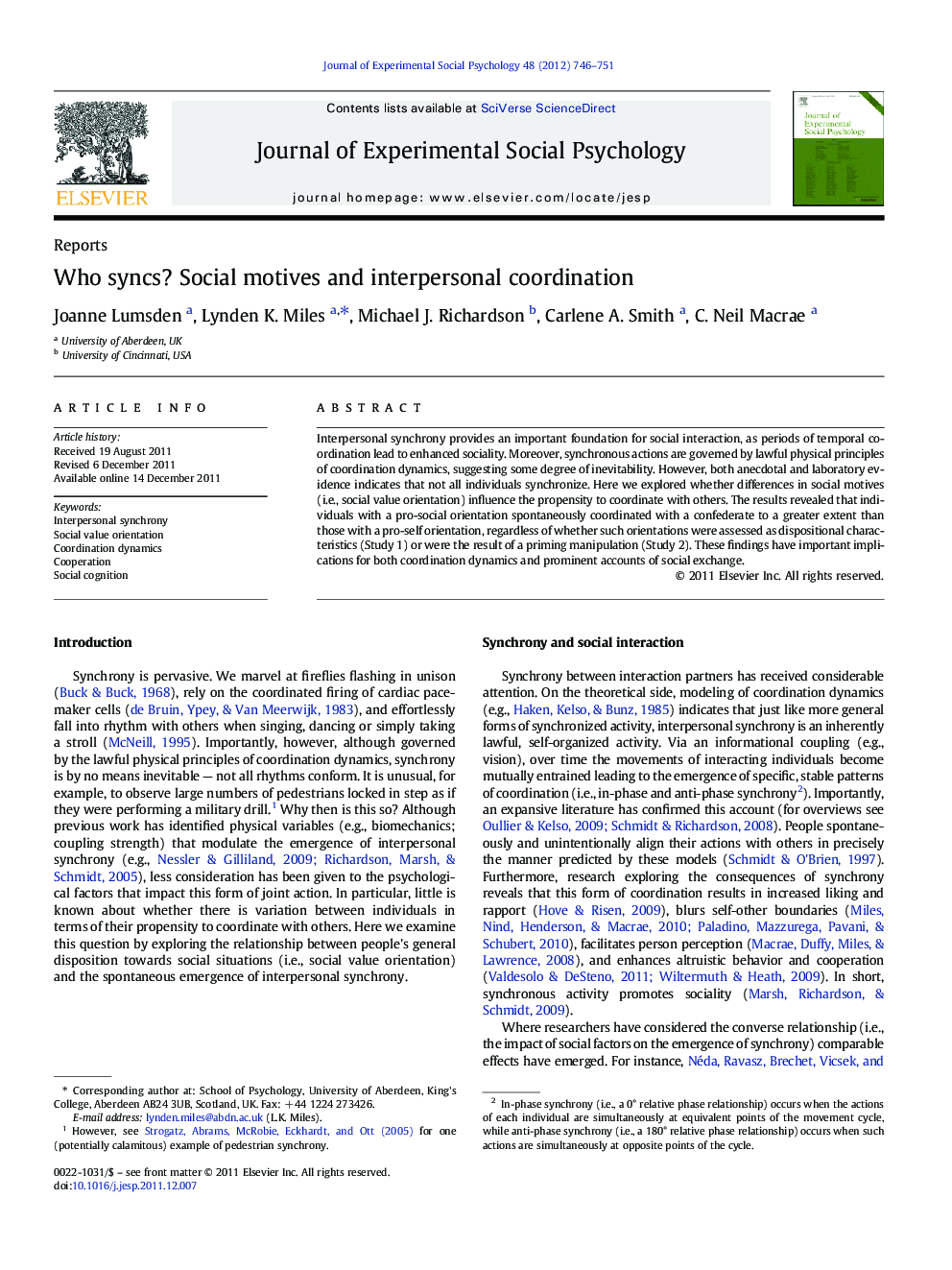| Article ID | Journal | Published Year | Pages | File Type |
|---|---|---|---|---|
| 948412 | Journal of Experimental Social Psychology | 2012 | 6 Pages |
Interpersonal synchrony provides an important foundation for social interaction, as periods of temporal coordination lead to enhanced sociality. Moreover, synchronous actions are governed by lawful physical principles of coordination dynamics, suggesting some degree of inevitability. However, both anecdotal and laboratory evidence indicates that not all individuals synchronize. Here we explored whether differences in social motives (i.e., social value orientation) influence the propensity to coordinate with others. The results revealed that individuals with a pro-social orientation spontaneously coordinated with a confederate to a greater extent than those with a pro-self orientation, regardless of whether such orientations were assessed as dispositional characteristics (Study 1) or were the result of a priming manipulation (Study 2). These findings have important implications for both coordination dynamics and prominent accounts of social exchange.
► Interpersonal synchrony provides an important foundation for social exchange. ► However individuals vary considerably in their propensity to coordinate with others. ► We explored whether social value orientation influences interpersonal synchrony. ► Pro-social individuals coordinated to a greater extent than pro-self individuals. ► There is an interplay between social motives and coordination dynamics.
